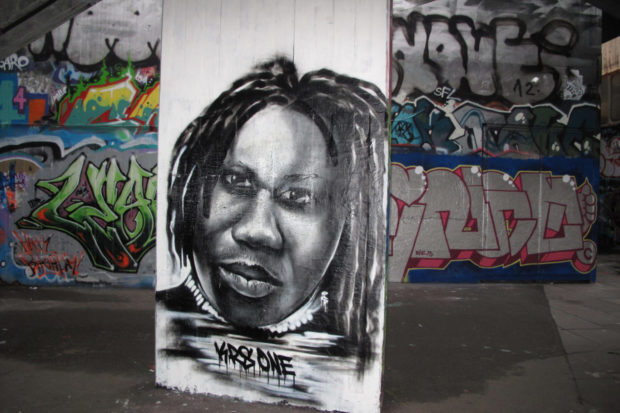
On February 8, hip hop scholar and artist KRS One lectured and performed at Fresno State. The lecture and performance was put together by the Fresno State’s Africana Studies Program and the Hip Hop Research and Interview Project, an annual research project that brings hip hop artists to the Fresno State campus for a series of lectures, performances and interviews. This event was free and opened to the community.
I was one of the many community members that attended the concert and lecture. As an attendant, I was able to cultivate much knowledge as well as understand and observe firsthand the continuous struggle of the integration of hip hop into institutions such as Fresno State.
In his lecture, KRS One talked about many critical aspects of this postmodern culture. He touched on many important historical events such as the accomplishment of a New York gang leader who earned a trip to Africa. While in Africa, this gang leader met a Zulu chief. Through dialogue with the chief, this gang member drew parallels to the colonization of African tribes and the systematic oppression of being forced into gang life in the late 1970s in New York. The gang leader then understood how African tribes, just like gangs, had been battling each other over time allowing oppressive forces to overpower their communities.
That gang member returned to New York. He adopted the name Afrika Bambaataa and, through dialogue with other gang leaders and the collective implementation of hip hop artistic expression, was able to end New York gang warfare for a decade. This allowed hip hop culture to flourish and bring its people together.
The lecture also addressed a contemporary global hip hop culture that is expanding and evolving. There was a critical look into the commercialization and corporate exploitation of the culture. KRS also touched on the importance of the four artistic elements of the culture (i.e., DJing, MCing, graffiti, break dancing). The lecture ended with his thoughts about the future of hip hop in academia, mentioning the potential of a new generation of educators in the field continuing the work of the first group of hip hop scholars.
I spoke with Dr. Hasan Johnson, professor of Africana Studies and hip hop scholar at Fresno State and lead organizer of the Hip Hop Research and Interview Project. He expressed how he seeks to connect with both students and community to study and share critical aspects of hip hop culture. Dr. Johnson emphasized the importance of getting to the grassroots essence of the culture with this project. He also spoke about the importance of authenticating the elders and educators of the culture through educational institutions.
Dr. Johnson conducts interviews each year with the guest artist of this annual project. An interview with last year’s guest artist, X-Clan, can be found on his Web site (thasanjohnson.org/videos.htm), and the KRS One interview is expected to be online soon.
It is crucial to point out the level of police surveillance and the restrictions set by Campus Police and administration for the whole event. According to the organizers, the affordability of this event changed drastically when they were forced to add police fees because the Campus Police determined there was a security issue due to the event being a hip hop concert and lecture that would be open to the community.
There were both public and undercover police officers present during the morning lecture and even more police officers along with a patrol car outside of the Satellite Student Union (SSU), where the concert took place. As a “safety” measure, only 150 people were allowed into the SSU, a venue with a theater seating capacity of 800, according to the Fresno State Web site.
Graduate student Rebecca Teruko was one of the many who were not allowed into the concert. “It is a shame that there were more people denied entrance than the number of people that were allowed in…they rejected the community that wanted to get a taste of urban culture in an academic setting.” Teruko went on to describe this action as “cultural discrimination” and called for students to speak out against the barriers set by administration for such events to develop.
As hip hop culture continues to expand and grow, it is important to remember that in its essence, it is a popular form of expression and as such it carries the legitimate struggle of its people. Therefore, it is important to support such events as the one described in this article and to keep the grassroots of hip hop alive in our communities and universities.
